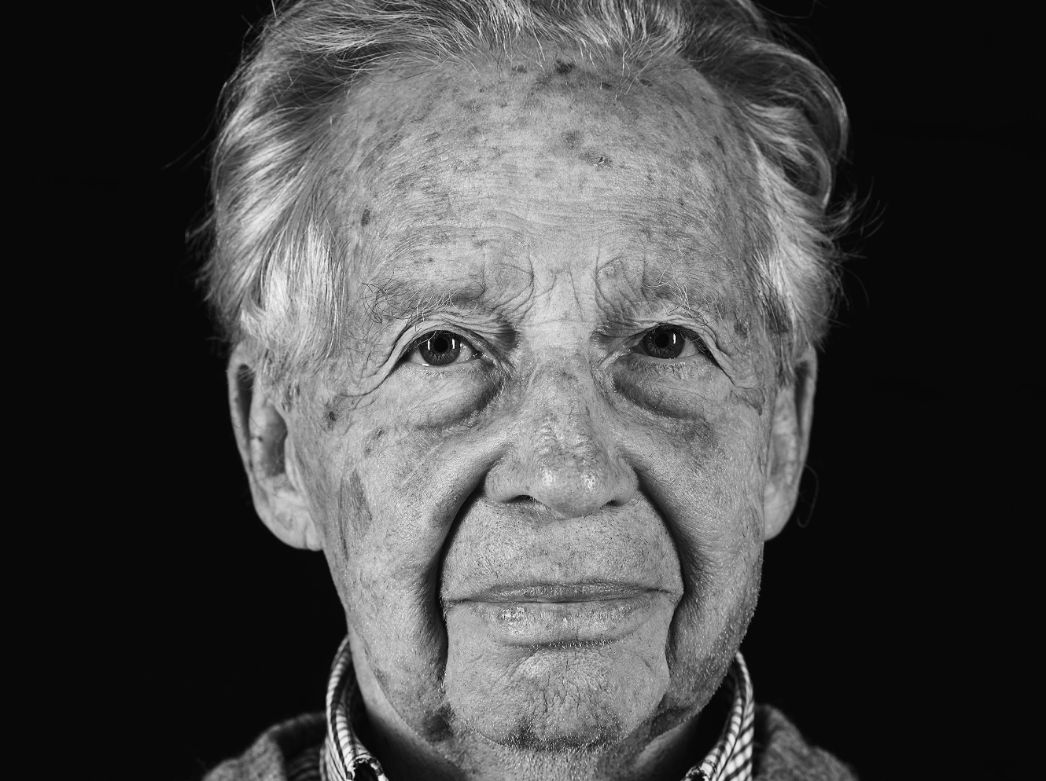Transcript
Narrator When the Fossoli transit camp in northern Italy was cleared in August 1944, the family was separated forever. Gilberto Salmoni and his older brother Renato were taken to the Buchenwald concentration camp. The SS deported their father, mother and sister to Auschwitz.
The person responsible was SS-Sturmbannführer Friedrich Boßhammer, the “Jewish Affairs Officer” of the Verona security police. Shortly before the SS gave the Fossoli camp up for good because it was located too close to the front, Boßhammer – acting on his own initiative and against an agreement with the Italian government – removed those who had been spared so far: Jews married to non-Jewish people and so-called “Jewish half-breeds”.
The Nazis considered Gilberto Salmoni from Genoa a “first-degree half-breed”. His mother was of Greek origin, his father an Italian Jew. In the family’s everyday life, this had hardly mattered. And during the period of Italian fascism under Benito Mussolini, who had governed the country since 1922, whether or not one was Jewish had long been of no consequence. Anti-Semitism existed in Italy as well, but hostility toward Jews had meant something different to Italian fascists than it now did to German Nazis. Thus, Gilberto, like almost all his classmates in primary school, had joined the fascist youth organization Balilla, which had served as a model for the Hitler Youth.
In 1938, everything changed. Italy gave in to the pressure exerted by allied Nazi-Germany and passed anti-Jewish racial laws modelled on the Nuremberg Laws. Now Jews had to leave the civil service, were only allowed to own property of little value and could only manage small companies.
Gilberto’s father lost his position with an agricultural council. His older brother Renato, who had completed his medical degree, did not find employment at the clinic, while Gilberto had to change from his public school to a private school. Further discriminating laws followed. The living conditions of the Salmonis deteriorated rapidly. They moved to the country.
When Mussolini was overthrown in 1943, the Germans occupied Italy and soon began deporting Italian Jews. In the spring of 1944, the Salmonis tried to flee to Switzerland. They were arrested at the border and detained at the Fossoli transit camp in the northern Italian province of Modena. The SS abducted several thousand political and Jewish prisoners in Fossoli, taking them to concentration and extermination camps.
Gilberto was 16 years old when he arrived in Buchenwald. At first, he and his brother were used in railroad construction. They survived, partly because they were able to transfer to easier detachments after some time. In June 1945, they returned to Genoa, to their family’s flat – but their sister Dora, their mother Vittorina and their father Gino Salmoni had been murdered in Auschwitz.
Gilberto obtained his school-leaving qualification, went to university and worked as an engineer at a steel company for 30 years. At the age of 55, he changed to a different field: He went back to university and became a psychologist. For decades, he had not said a word about the time of his persecution and internment. But since the late 1990s, Gilberto Salmoni has been active in the Italian association of survivors.


